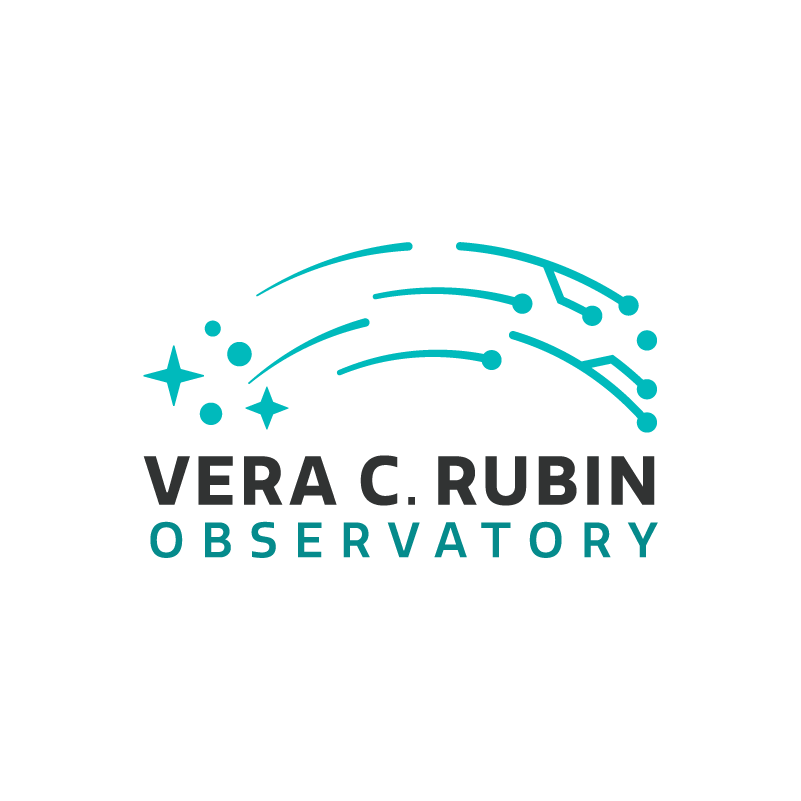AURA Distributes Initial Funding of US $900,000 to Contribute to the Development of Astronomy in Chile
The funding will support participation in the National Science Foundation-Department of Energy Vera C. Rubin Observatory related science in lieu of telescope time
21 June 2024
A new fund from the U.S. National Science Foundation (NSF) for the development of Chilean astronomy was distributed by the Association of Universities for Research in Astronomy (AURA) to the University of Chile as part of an agreement for the upcoming start of operations of Vera C. Rubin Observatory, now under construction in the Coquimbo Region in Chile.
Rubin Observatory is a Program of NSF NOIRLab, which, along with SLAC National Accelerator Laboratory, will cooperatively operate Rubin. Rubin Observatory will begin science operations in late 2025.
According to Rubin Observatory Director of Operations, Robert Blum, this initial funding exceeds US $900,000. The fund will be distributed over time with an annual delivery of US $850,000 while Rubin is in operation, with an annual increase of 3%.
Scientific Director of AURA in Chile and Deputy Director of NSF NOIRLab, Stuartt Corder, explained, “Rubin has a very wide field of view, which will map the sky of the southern hemisphere every three to four nights, providing information on the changes it detects. Because it is carrying out this survey, there will be no applications for observing time as is traditionally done at the other telescopes that we have in Chile. Instead, to compensate for the 10% of observing time that AURA has committed to the Chilean astronomical community, there is an economic contribution.”
The fund will be administered by the Fund Management Office of the Astronomy Department of the University of Chile on behalf of the Chilean astronomical community. Its director, Patricio Rojo, said, “On 30 May we opened the Rubin/Chile fund for the first time to competition, which will be open for 60 days. This first call will distribute US $812,000, an amount that already has administration costs deducted, and will become the first public astronomical fund that the University of Chile will manage.”
The Rubin/Chile fund will support initiatives linked to science based on Vera C. Rubin Observatory data and facilities, financing creative proposals from the extended astronomical community. It supports three areas of financing: Development and Research in Astronomy, Instrumentation, and Outreach and Education.
Proposals will be reviewed by an evaluation committee consisting of seven members: one representative from the University of Chile, three chosen at random, plus one chosen by the Chilean Astronomy Society (SOCHIAS), from a group proposed by the Directors of astronomy departments of Chilean universities, and two non-astronomers chosen by the other five members.
AURA Head of Mission in Chile, Alejandra Voigt, highlighted, “AURA has been in Chile for more than 60 years and has always had a close and cordial relationship with the community that hosts us. AURA is happy to continue contributing to the development of the Chilean astronomical community, which is also contributing a lot to us with its work in our facilities.”
More information
NSF NOIRLab (U.S. National Science Foundation National Optical-Infrared Astronomy Research Laboratory), the U.S. center for ground-based optical-infrared astronomy, operates the International Gemini Observatory (a facility of NSF, NRC–Canada, ANID–Chile, MCTIC–Brazil, MINCyT–Argentina, and KASI–Republic of Korea), Kitt Peak National Observatory (KPNO), Cerro Tololo Inter-American Observatory (CTIO), the Community Science and Data Center (CSDC), and Vera C. Rubin Observatory (operated in cooperation with the Department of Energy’s SLAC National Accelerator Laboratory). It is managed by the Association of Universities for Research in Astronomy (AURA) under a cooperative agreement with NSF and is headquartered in Tucson, Arizona. The astronomical community is honored to have the opportunity to conduct astronomical research on I’oligam Du’ag (Kitt Peak) in Arizona, on Maunakea in Hawai‘i, and on Cerro Tololo and Cerro Pachón in Chile. We recognize and acknowledge the very significant cultural role and reverence that these sites have to the Tohono O’odham Nation, to the Native Hawaiian community, and to the local communities in Chile, respectively.
Vera C. Rubin Observatory is a Federal project jointly funded by the U.S. National Science Foundation (NSF) and the U.S. Department of Energy (DOE) Office of Science, with early construction funding received from private donations through the LSST Discovery Alliance. The NSF-funded Rubin Observatory Project Office for construction was established as an operating center under the management of the Association of Universities for Research in Astronomy (AURA). The DOE-funded effort to build the Rubin Observatory LSST Camera (LSSTCam) is managed by SLAC National Accelerator Laboratory (SLAC). France provides key support to the construction and operations of Rubin Observatory through contributions from CNRS/IN2P3. Additional contributions from a number of international organizations and teams are acknowledged.
The U.S. National Science Foundation (NSF) is an independent federal agency created by Congress in 1950 to promote the progress of science. NSF supports basic research and people to create knowledge that transforms the future.
SLAC is operated by Stanford University for the US Department of Energy’s Office of Science. The Office of Science is the single largest supporter of basic research in the physical sciences in the United States and is working to address some of the most pressing challenges of our time.
NSF and DOE will continue to support Rubin Observatory in its Operations phase via NSF NOIRLab and DOE’s SLAC.
Links
- Original Blog post by AURA
- Vera C. Rubin Observatory website
- Vera C. Rubin Observatory images
- Vera C. Rubin Observatory videos
Contacts
Shari Lifson
Corporate Communications Coordinator
Association of Universities for Research in Astronomy
Email: slifson@aura-astronomy.org
Josie Fenske
Jr. Public Information Officer
NSF NOIRLab
Email: josie.fenske@noirlab.edu


